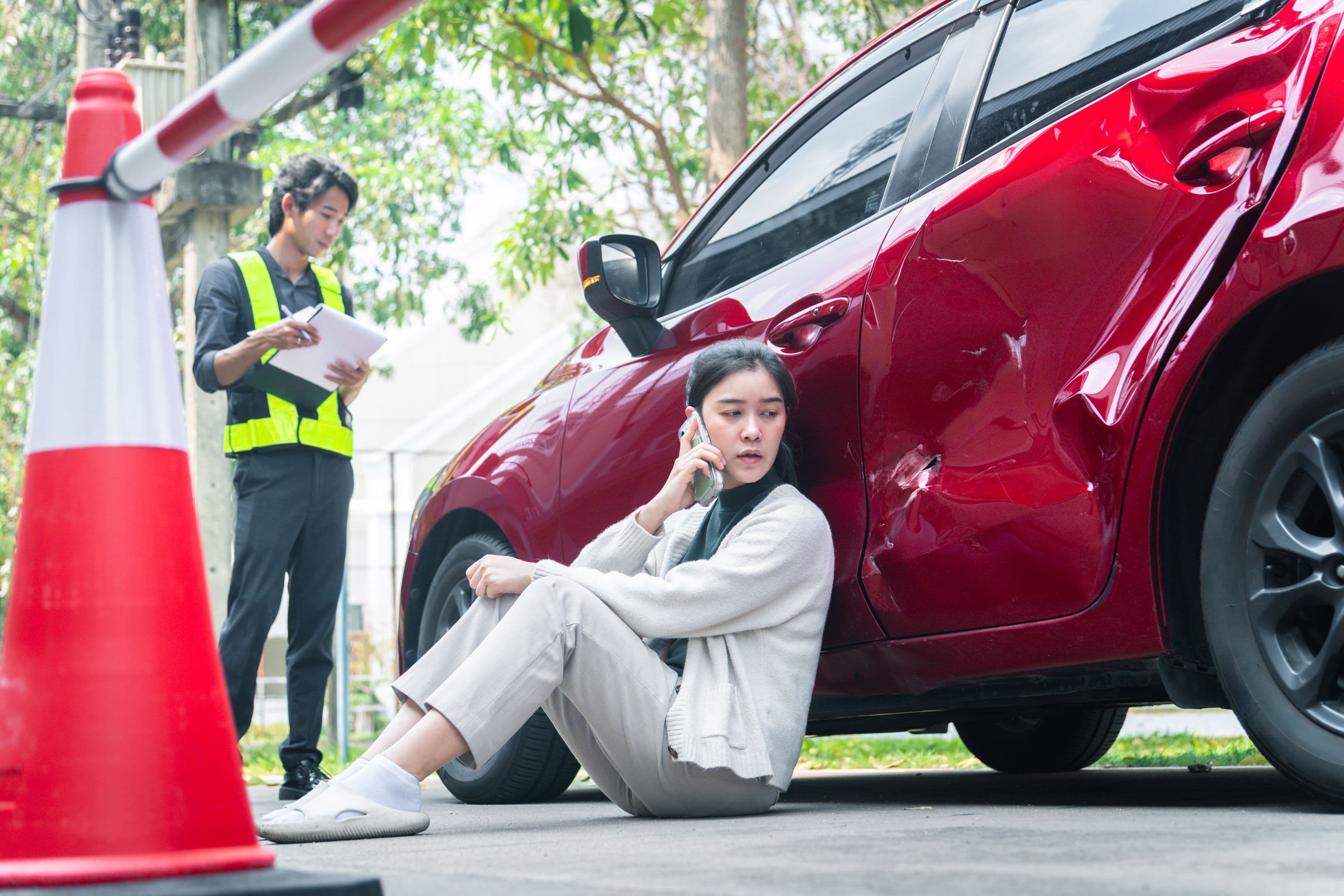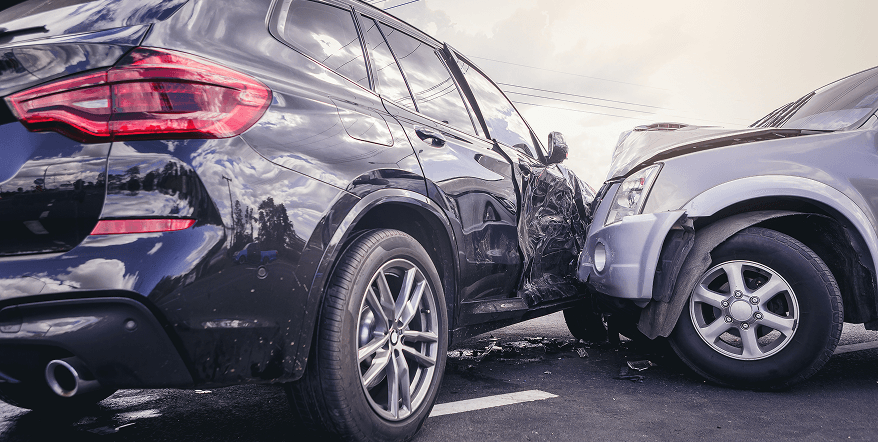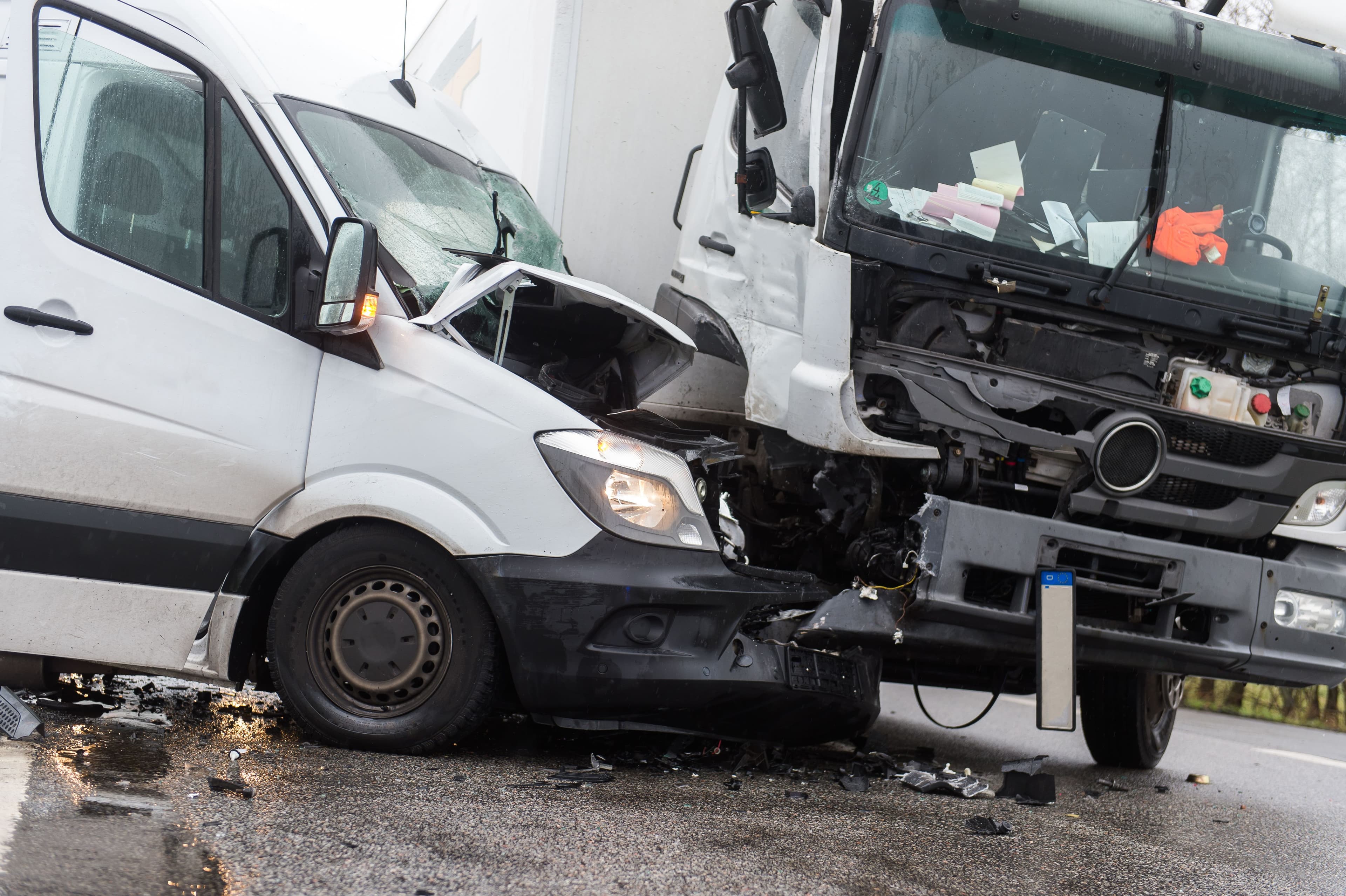When you’re driving a company vehicle, it brings up new issues of liability and questions about whose insurance applies. In some situations, you may bear responsibility, while your employer may be liable in others. You may even have to file a workers’ compensation claim in addition to a car accident claim to get the resources you need.
Company car accidents in Pennsylvania can also raise the issue of third-party liability. For example, if your employer contracts their repairs to another company, that company may be liable for the mishap.
With all these potential complications, it’s easy for the average person to get lost in the shuffle after a car accident involving a company vehicle. Understanding your legal options and working with our experienced West Chester car accident lawyers can help you get the compensation you need to recover after suffering a serious injury.
Determining Liability in a Car Accident on the Job
Even if the accident was your fault, there’s still the question of exactly which party is liable. Depending on the circumstances of company car accidents in Pennsylvania, either the worker or their employer may be held responsible.
Under the legal concept of vicarious liability, employers are liable for the actions of their employees while they’re performing work duties or actions that further work duties. This means that the employer is usually liable for the actions of employees that lead to company car accidents in Pennsylvania.
If the liability falls to your employer, their insurance will cover your injuries. While filing a claim with a corporate insurance company can be tedious, corporate insurance policies typically offer considerably higher benefits than personal policies.
In Pennsylvania, drivers are only required to purchase a minimum of $15,000 per person in bodily injury liability coverage ($30,000 per accident) and $5,000 in property damage liability coverage.
Those values are unlikely to offer enough compensation after a serious accident. However, a corporate insurance company may cover hundreds of thousands of dollars for injuries and property damage.
Unfortunately, the fact that you’re driving a company vehicle doesn’t necessarily mean you’re covered by your employer’s policy — you must have been performing work duties at the time of the accident. There are several situations where you could be driving a company car in a manner that absolves your employer of liability.
To determine liability for company car accidents in Pennsylvania, it’s a good idea to work with a qualified attorney. Your lawyer can investigate whether your actions were within the scope of your employment. This can be difficult to determine accurately on your own.
What Are Some Scenarios When the Employer Would Not Be Liable?
When distinguishing between personal liability and vicarious liability can mean the difference between full compensation and an inadequate settlement, it’s essential to understand what your employer’s insurance policy does and doesn’t cover.
The following are several common scenarios where you wouldn’t be covered:
You Were Violating the Law
Part of the agreement you make with your employer when you’re granted a company car is that you’ll obey all traffic laws. Consequently, if you were intoxicated, driving recklessly, or doing something illegal with the vehicle at the time of the crash, your actions wouldn’t be covered by the company’s insurance policy.
While traffic violations involve breaking the law, offenses that don’t rise to the level of felonies don’t typically affect vicarious liability. For example, if you’re going slightly over the speed limit or forget to signal while switching lanes, your employer’s insurance should still apply if you’re involved in an accident.
You Were Violating Company Rules or Didn’t Have Permission to Drive the Vehicle
If you “borrow” a company vehicle without permission, you won’t be protected by your employer’s insurance, even if you were using the vehicle to perform work duties. You need express permission from your employer to operate the vehicle in order for vicarious liability to apply.
Additionally, you must follow any rules set by the company. This is a situation where speeding could result in the company not being liable for your actions. If the company has explicit rules against speeding and can prove that you violated them, you would become liable for whatever happened while you were driving too fast.
You Were Using the Vehicle Outside of Work Hours
This particular scenario is often far from black and white. If you’re using a company vehicle outside of work hours, there’s probably a good reason. Therefore, there may be situations where doing so is still within your work duties.
However, just because you have possession of a company vehicle when you aren’t working doesn’t mean you should be driving it. For instance, if you drive the car on a weekend when you aren’t working, you would most likely be liable for any accidents you cause.
You Were Using the Car for a Personal Errand During Work Hours
This scenario can also present some gray areas. Imagine you have access to a company car all day, and part of your work day includes a paid lunch break. Driving to a nearby restaurant to grab lunch, though not a work duty, would probably be an activity your employer’s policy covers.
However, if you were to stop at a grocery store to do some quick shopping, the portion of your trip to and from the store would fall outside your work duties. If you were unlucky enough to get into an accident during that time, you’d probably be personally liable for the accident.
Workers’ Compensation Claims for Company Car Accidents
A tricky part of dealing with company car accidents in Pennsylvania that involve injury is determining whether you need to file a claim against your employer’s insurance policy, a workers’ compensation claim, or both. Each process is different, and the rules of one may affect how much compensation you get from the other.
The Pennsylvania Department of Labor and Industry regulates workers’ compensation claims in the state. You can only file a workers’ comp claim if all of the following are true:
- Your employer has workers’ compensation insurance as required by law
- You’re covered by your employer’s workers’ compensation insurance
- The harm you suffered occurred while you were performing work-related activities
The second point can be problematic for some workers. If you’re classified as an employee, you’re automatically covered by workers’ compensation insurance. However, not everyone who receives a paycheck from a company is an employee. Independent contractors aren’t protected by workers’ compensation insurance.
As such, one of the first things you’ll need to do is determine how you’re classified. If you’ve filed a tax return since starting in your current position, you should know whether you’re classified as an employee or an independent contractor. However, if you’re new to the job, you might be uncertain. The answer can be found in your work contract.
Finally, it’s worth noting that your employer’s workers’ compensation insurer might define covered duties differently than your employer or a court would. That means there’s a small chance you could fall into an area of the law where workers’ compensation doesn’t apply but vicarious liability does.
Third-Party Company Car Accident Claims
Another complicating factor is the involvement of third parties.
For example, if the accident was primarily caused by the local government’s failure to maintain the road you were traveling on or a mechanic’s failure to properly repair the vehicle you were driving, you could potentially seek compensation from that party rather than your employer’s insurance company.
This is particularly important because workers’ compensation claims don’t provide non-economic damages. If you’re filing for workers’ comp, you can only receive benefits to cover your medical bills, lost wages, and other related expenses, such as travel costs.
However, if you file a claim with a third party’s insurer or initiate a lawsuit against them, you can potentially receive non-economic damages for pain and suffering and other non-monetary losses resulting from the accident. That could result in you getting significantly more compensation than you would otherwise.
Finally, in a rare situation, you might find yourself on the same side of a third-party lawsuit as your employer, even if you file a workers’ compensation claim. This is usually a boon because it means you’ll have your employer’s lawyers supporting your claim.
When Fault Is Shared
Everything discussed so far assumes that a single party was to blame for the accident. In most car accidents, however, establishing fault isn’t that simple. The evidence frequently suggests that both parties were partially responsible.
This creates yet another complication that must be addressed. Can you recover damages if you were partially at fault for a company car accident?
The good news is that this is a possibility. However, you can only receive damages from legal proceedings if you were less than 51% responsible for the accident. If you’re found to have any higher percentage of fault, you’ll be barred from recovering damages.
While this rule is typically invoked during court proceedings, it effectively applies to insurance companies as well.
The only way to force an insurance company to pay compensation when it denies a claim is by taking it to court. If you were more than 50% liable for your accident, however, your lawsuit won’t go anywhere.
How Shared Fault Impacts Compensation
There’s a second critical factor involved in shared fault claims: If the court decides that you’re partially at fault for your injuries, any award you receive will be reduced based on the specific percentage of fault you’re assigned.
In other words, if you were to win your case and be awarded $200,000, but the jury determines that you’re 10% at fault, you wouldn’t receive the full $200,000. Instead, you would get $180,000, as that’s the total value of your award prorated by your percentage of fault.
Insurance companies apply this principle to settlement negotiations for the same reason they might deny a claim if you were 60% at fault — there’s no point in them paying out a claim filed by someone who caused their own accident. Therefore, settlement negotiations often hinge on each party’s respective degree of fault as revealed by the evidence.
If you’re being represented by a lawyer, they’ll gather and present compelling evidence showing that you aren’t at fault (or aren’t primarily at fault) and that the other party is. To avoid taking the case to court, the insurers may be willing to negotiate and offer you a settlement amount that you find satisfactory.
Applying the principles of Pennsylvania’s modified comparative negligence law can be tricky, especially in instances where multiple parties are involved. That’s why it’s wise to hire a qualified attorney to represent you.
A reliable attorney will understand how fault is apportioned in car accident cases, including those involving company vehicles, and leverage their knowledge and skill to get you the compensation you need.
Contact Our Experienced West Chester Company Car Accident Lawyers Today
At Wilk Law Personal Injury & Car Accident Lawyers, we’re committed to helping our clients recover fair compensation after they’re hurt in preventable accidents. Our attorneys have recovered millions of dollars for our clients throughout our many years of service in the Philadelphia metropolitan area.
If you’ve been injured in a company car accident in Pennsylvania, contact us to schedule a free consultation to discuss your case.
Locations in Pennsylvania where we have helped individuals with car accident claims include West Chester, Reading, Philadelphia, Pottstown, Coatesville, Phoenixville, Valley Forge, Devon, Exton, and more.
Related Articles
Pennsylvania statute of limitations for car accidents




